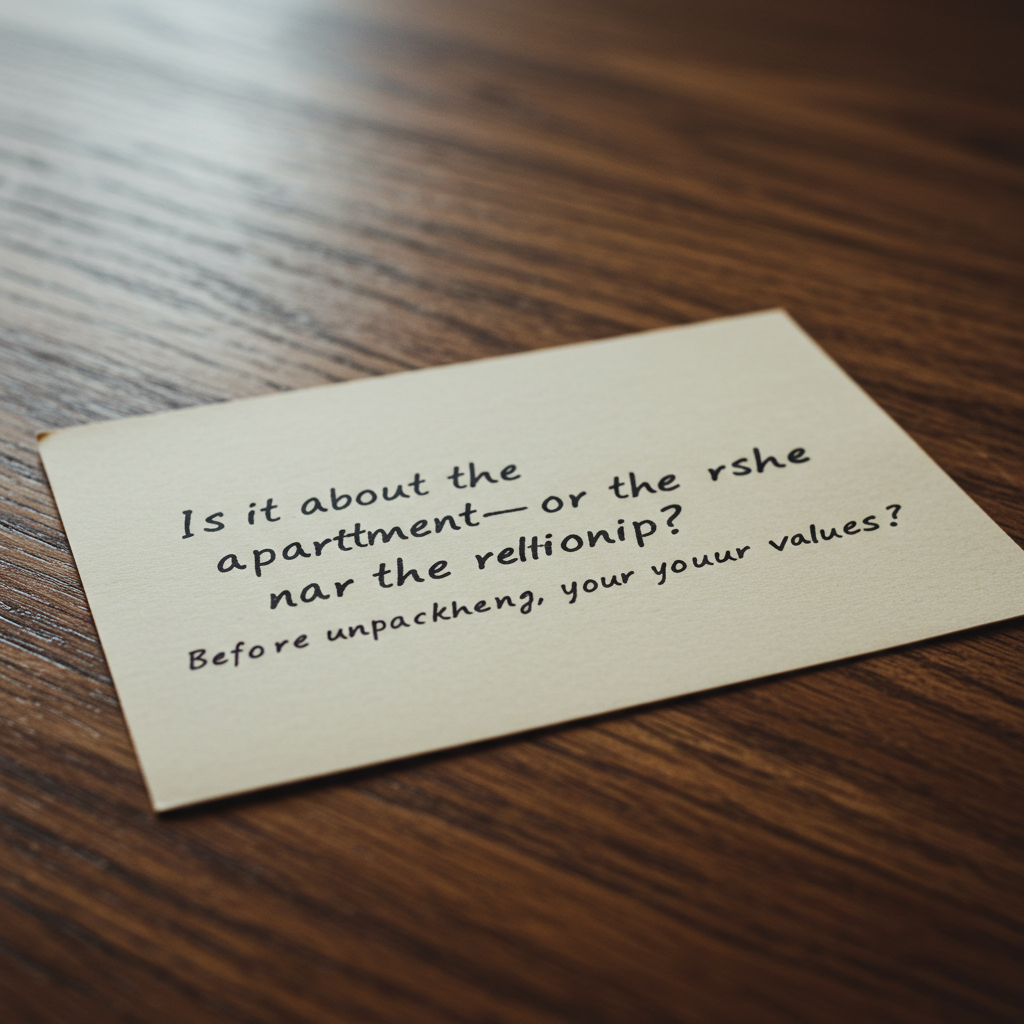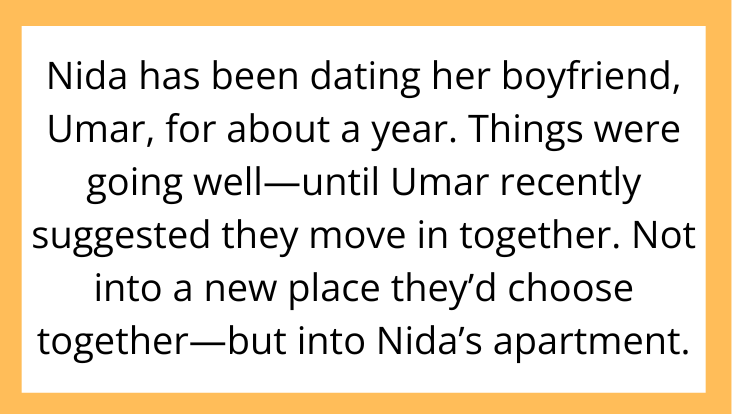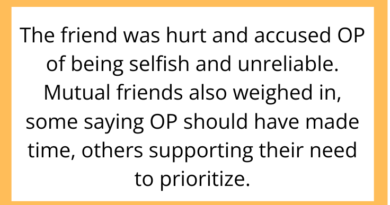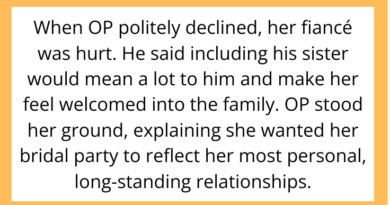AITAH for Not Letting My Boyfriend Move Into the Apartment I Pay For Alone?
Living together is a big step in any relationship—but what happens when one partner feels ready, and the other doesn’t want to foot the bill for two?
This AITAH story dives into a relationship clash over shared living space, financial boundaries, and emotional expectations. When independence meets entitlement, who’s really in the wrong?
Let’s get into the story.
The Situation: She Pays, He Wants In

The original poster (we’ll call her Nida), a 26-year-old woman, lives alone in a cozy one-bedroom apartment she’s been renting for two years. She works full-time, handles all the bills herself, and enjoys her space.
Nida has been dating her boyfriend, Umar, for about a year. Things were going well—until Umar recently suggested they move in together. Not into a new place they’d choose together—but into Nida’s apartment.
Umar doesn’t currently have a stable income. He’s doing freelance work, but it’s sporadic. He suggested he move in rent-free “for a few months” while he stabilizes his finances.
Nida said no.
And that’s where things went south.
The Reaction: Accusations of Selfishness

According to Nida, Umar didn’t take the rejection well. He said if she really loved him, she’d want to support him through a rough patch. He accused her of being selfish, materialistic, and overly controlling about “just a place.”
He even said that couples who truly plan a future together don’t “keep score” when it comes to money.
Nida, feeling hurt and conflicted, turned to Reddit’s r/AITAH to ask: Am I the villain for not letting my boyfriend move in rent-free into the apartment I pay for?
Financial Boundaries in Relationships: Where’s the Line?

Why Nida Might Not Be the Villain
Nida isn’t refusing to support Umar—she’s refusing to compromise her independence, comfort, and financial stability. That’s not selfish; it’s smart.
-
She pays all the bills: Letting someone move in rent-free, especially without a plan or timeline, can create imbalance and resentment.
-
She set a boundary: Umar didn’t ask if they could move somewhere together, split costs, or work toward shared responsibilities. He wanted in—on her terms.
-
She worked hard for her independence: Her home is her safe space, and she has every right to control who lives in it.
Why Umar Might Feel Hurt
That said, Umar’s emotions aren’t entirely irrational.
-
He might feel rejected or unsupported: Especially if he’s genuinely struggling and thought they were moving toward a serious, committed future.
-
He may view living together as a natural next step: In many relationships, cohabitation is a milestone—and if one partner isn’t ready, the other might take it personally.
Still, feeling hurt doesn’t give him the right to guilt-trip Nida into a major financial decision.
Reddit Responds: You’re Not a Free Roommate

The AITAH community largely backed Nida.
Top comments emphasized:
-
Boundaries matter: Just because you’re in a relationship doesn’t mean your partner is entitled to your space or money.
-
Love isn’t about blind sacrifice: Support can mean emotional encouragement, not always financial aid.
-
This could be a red flag: Umar’s reaction—anger, guilt-tripping, manipulation—worried many commenters.
As one commenter put it:
“You’re not an ATM with a couch. If he wants to live with you, he needs to bring something to the table.”
Cohabitation: Shared Decision, Shared Responsibility

Moving in together isn’t just a romantic gesture—it’s a logistical and financial partnership. Both people should feel secure, respected, and clear about expectations.
What Nida and Umar are dealing with isn’t just about living arrangements—it’s about values.
-
Does Umar believe in shared responsibility?
-
Does Nida feel safe and respected when setting boundaries?
-
Do they have compatible goals for the future?
Without alignment on these basics, moving in together is a recipe for resentment.
Should They Break Up Over This?

Not necessarily—but they do need to talk.
Nida might ask herself:
-
Is Umar willing to work toward contributing, or just expecting comfort?
-
Does he respect my “no,” or try to pressure me into guilt?
-
Do I feel emotionally and financially safe in this relationship?
And Umar might ask himself:
-
Am I feeling entitled to comfort without contributing?
-
Am I making this about love, or am I avoiding responsibility?
The Takeaway: Saying No Doesn’t Make You the Villain

In relationships, love isn’t proven by sacrifice—it’s shown through respect.
Nida isn’t the villain for not letting someone move into her home rent-free. She’s drawing a boundary to protect her peace, her finances, and her future.
If Umar can’t respect that, maybe the issue isn’t about where they live—but whether they should be living together at all.



